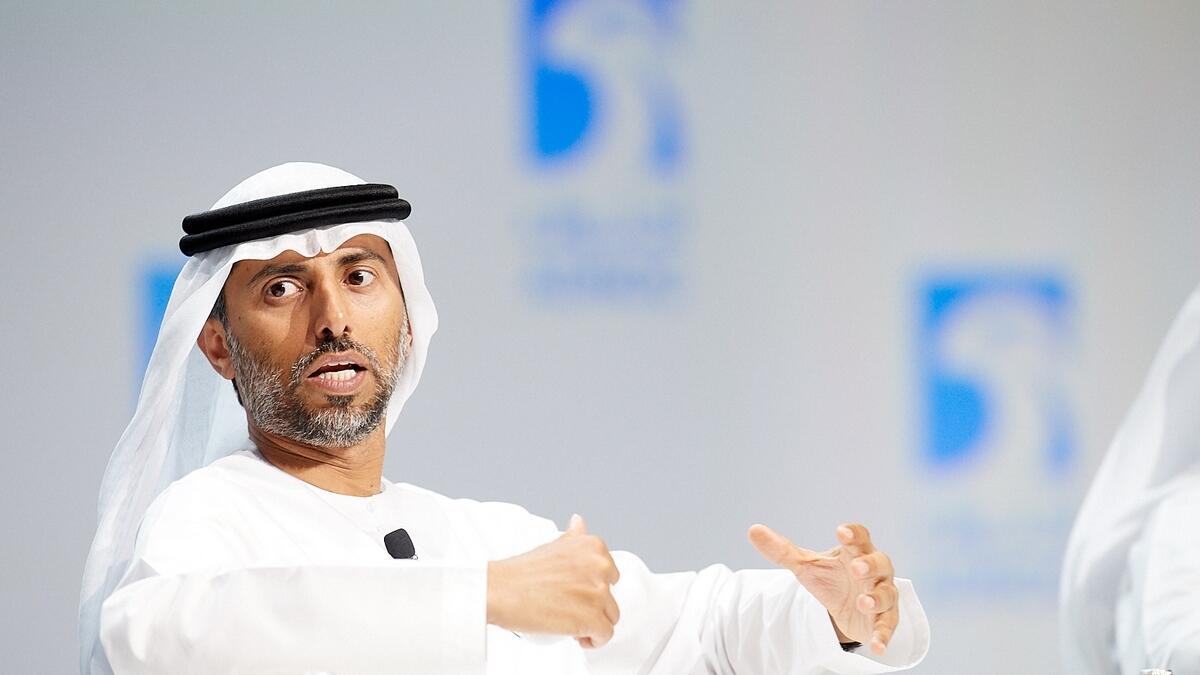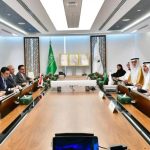The UAE energy minister, Suhail Al Mazrouei, praised OPEC+ for its efforts in balancing the oil market, despite not being the largest producer of oil globally. At an industry event in Fujairah, Mazrouei highlighted the sacrifices made by OPEC+ and emphasized the importance of the group staying united. He refrained from providing a short-term outlook for oil in 2025, citing various factors such as geopolitics that could impact the market.
Oil prices surged by over a dollar on Wednesday due to escalating tensions in the Middle East, which raised concerns about potential disruptions in crude output from the region following Iran’s military strike against Israel. Brent crude reached $74.56 a barrel, reflecting the impact of geopolitical events on oil prices. Top ministers from OPEC and allies, known as OPEC+, are scheduled to hold an online JMMC meeting to monitor the oil market on Wednesday to discuss current developments.
Despite a decline in oil prices in 2024, with Brent crude dropping below $70 a barrel for the first time since 2021, OPEC+ has implemented output cuts to stabilize the market. These cuts, amounting to around 5.7% of global demand, have been a key strategy adopted by OPEC+ since late 2022 to address concerns about oversupply and weakening demand. The upcoming JMMC meeting is unlikely to recommend any changes to the current plan of gradually unwinding these cuts starting in December.
The energy sector continues to navigate uncertainties driven by geopolitical events, global demand, and supply dynamics. OPEC+ has played a pivotal role in stabilizing the oil market through coordinated efforts and production adjustments. Mazrouei’s comments underscore the importance of cooperation among oil-producing countries to maintain market stability and address challenges effectively. As oil prices respond to evolving geopolitical tensions and market fundamentals, monitoring mechanisms like the JMMC meetings are essential for decision-making and strategy alignment.
As OPEC+ maintains its commitment to market stability, stakeholders in the energy sector closely monitor developments to assess potential impacts on oil prices and supply dynamics. The group’s strategic approach to balancing supply and demand has supported price levels amid global uncertainties. With oil prices reacting to geopolitical events and supply concerns, OPEC+ remains a key player in shaping market dynamics and ensuring sustainable growth in the energy sector. The upcoming JMMC meeting will provide further insights into the group’s strategies and outlook for the oil market in the coming months.
In conclusion, the UAE energy minister’s remarks highlight the significance of OPEC+ efforts in stabilizing the oil market amidst evolving challenges. With geopolitical tensions impacting oil prices and supply dynamics, the group’s coordinated approach plays a crucial role in supporting market stability and addressing uncertainties. As OPEC+ continues to navigate market complexities, stakeholders in the energy sector closely monitor developments and engage in strategic discussions to adapt to changing market conditions. The upcoming JMMC meeting will serve as a platform for dialogue and decision-making to ensure a sustainable and balanced oil market in the face of global challenges.











